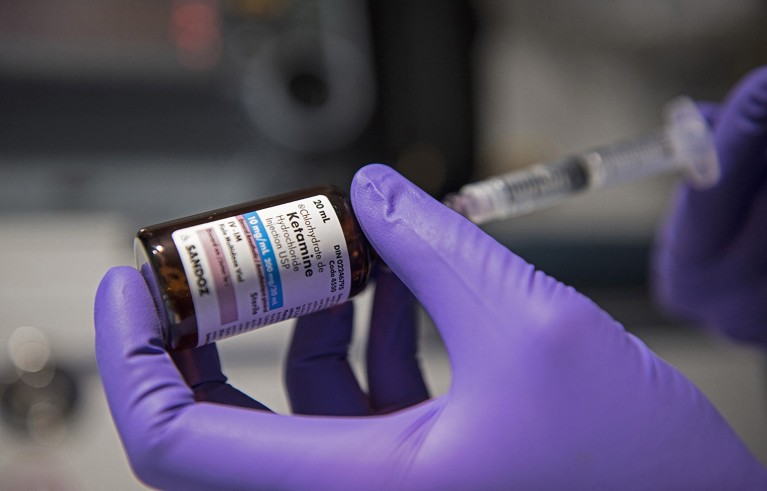Ketamine for Depression: A Revolutionary Treatment Option
With over a million cases worldwide, depression often resists conventional treatments and sends people in pursuit of alternative solutions. Among all the breakthrough approaches is Ketamine for Depression: a new remedy to bring hope to the life of patients with persistent symptoms. Its rapid action and high rates of success in relieving depressive symptoms make it a revolutionary alternative for mental health care.
Understanding Depression and Challenges
Depression is much more than mere sadness or overwhelming emotions; it constitutes disturbances in the one's emotional, cognitive, and physical state. Mostly it is hard to treat and needs multilayered treatment therapies. Traditional antidepressants or psychotherapy may take weeks or may prove futile for some individuals. In this respect, after failure from traditional antidepressants and psychotherapy, innovative treatment options like Ketamine have emerged in the therapy cycle.
What Is Ketamine and How Does It Work?
Ketamine was originally developed as an anaesthetic, but when given in small doses, it has proved to be a panacea for depression. Unlike the usual antidepressants, which work on the serotonin pathway as well as other neurotransmitters, ketamine works on glutamate pathways in the brain. This makes it different in its approach toward dealing with the malady of altered neural connections and enhancing the adaptability of the brain toward emotion.
How does Ketamine Therapy differ from Traditional Methods?
A distinctive feature of ketamine therapy is its swift action. Unlike most antidepressants, which begin to show effect after several weeks, ketamine could provide relief in symptoms within hours. This rapid relief can be of significant value in patients experiencing full-blown major depressive episodes or suicide ideation. In this respect, it may also present as a lifesaver for patients for whom other treatments have failed.
Process of Ketamine Therapy
Ketamine is typically administered in a clinical setting. Infusion via intravenous administration or through nasal sprays is common. It lasts around 40 minutes and sometimes an hour. The patient is monitored closely by medical professionals. Calibrated doses ensure that any dissociative symptoms would be entirely absent when it comes to a clinical setting, and instead beneficial antidepressive effects take place.
Benefits of Ketamine for Depression
Other than the rapid onset, other benefits of ketamine therapy include its particular effectiveness for what is termed treatment-resistant depression and with it, brings hope to patients who have seemingly tried everything. Significantly, most patients experience significant improvements in mood, energy levels, and overall quality of life after a few sessions. In addition, the neuroplastic effects that ketamine generates can aid individuals in developing healthier thought patterns over time.
Safety of Ketamine Therapy
Safety is paramount in any medical treatment. There are many studies showing that ketamine itself is safe and, indeed well-tolerated, when used under professional care. Most side effects are transient, such as mild dizziness or nausea, that last a short period of time after the session. Indeed, not everyone can be prescribed ketamine therapy, and the treatment must only commence following a proper evaluation.
Who Benefits from Ketamine Therapy?
Ketamine therapy, therefore, is promising for depressed patients that fail on other treatments and for patients with severe anxiety or post-traumatic stress disorder (PTSD). It is particularly useful for patients who do not respond to other treatments or who are in the midst of a mental health crisis. However, it is contraindicated in specific medical conditions or those with substance abuse history without extreme caution.
The Future of Ketamine in Mental Health Treatment
As long as ketamine proves to be an effective treatment for depression, these results are sure to open up new avenues for further research. Its applicability can go side by side with bipolar disorder, chronic pain, or even addiction. In the process of getting to know more about its mechanism, it will only fill our arsenal to handle complex conditions in a completely new way.
What to Expect from Ketamine Therapy

Patients frequently comment on the therapy as being profoundly relaxing and reflective. Often, people feel and indeed do experience disconnection from unwanted thoughts and feelings during the session, opening the way to permanent psychological change. After treatment, mood and mental clarity typically improves, allowing easier access to counselling or CBT.
How to Find a Credible Provider for Ketamine Therapy
Choosing the appropriate provider will pay off for proper treatment. Pick a clinic licensed to perform such work as ketamine therapy and with skilled professionals who have been involved in work on this type of treatment. It will be easy to be assured of trusted care with a personalised approach tailored according to your individual needs and goals. Of course, it is highly recommended to consult your healthcare provider to determine whether ketamine for depression might be the best option for you.
Actually, ketamine has revolutionised the concept of psychomental disorder treatment with hope and much-needed relief to those who are suffering severe episodes of depression. Ever-changing, advanced, and accessible, this innovative therapy will change lives and further open up a brighter future for mental health care.
- Art
- Causes
- Crafts
- Dance
- Drinks
- Film
- Fitness
- Food
- Игры
- Gardening
- Health
- Главная
- Literature
- Music
- Networking
- Другое
- Party
- Religion
- Shopping
- Sports
- Theater
- Wellness
- Politics
- IT
- Relationship
- Blockchain
- NFT
- Crypto
- Fintech
- Automobile
- Faith
- Family
- Animals
- Travel
- Pets
- Coding
- Comedy
- Movie
- Игра
- Computer


